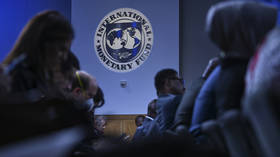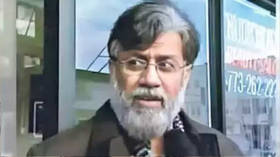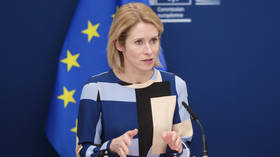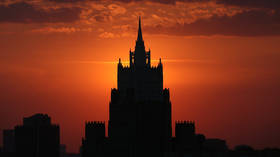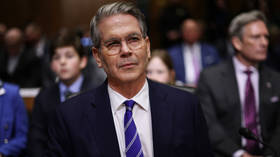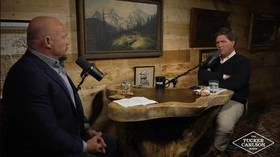America is superpower for looking beyond its interests - Obama at UNGA (VIDEO)
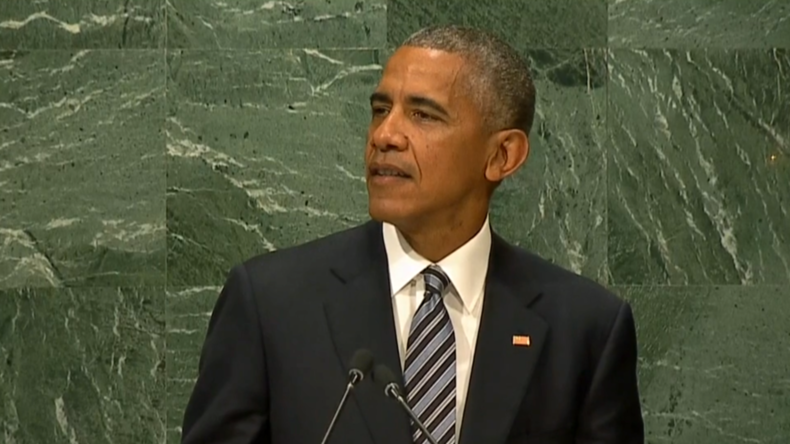
In his final address to the UN General Assembly, President Barack Obama praised the US for observing the interest of other countries, criticized those who do not, called for better trade agreements like TPP, and mentioned fight against ISIS in passing.
Putting colonialism and communism in the same basket, Obama said that their demise gave more people a choice and increased the number of democracies. He compared the "wasteland" of North Korea to South Korea, as proof that command economy doesn't work, but did not mention years of US and UN sanctions against North Korea.
He called on advanced economies to do more to close the gap between rich and poor nations, but warned that helping undeveloped countries out of poverty ought to take a back seat to fighting climate change.
A 'force for good'
Qualifying his country's role as a world superpower, Obama nonetheless said he believed the US has been "a force for good," the rare superpower in history able "to look beyond its narrow self-interest" and respect the interests of others by binding itself to international law.
Obama criticized Russia and China for what he said was strong-arming neighbors and militarizing some "rocks and reefs" – referring to the South China Sea – while arguing that the US believed in laws and peaceful resolution of disputes.
“At times, both America’s adversaries and some of our allies believe that all problems are caused by Washington or could be solved by Washington. And perhaps some in Washington have thought that as well,” Obama said, to laughter from the Assembly.
The outgoing US president criticized his country for having too much money in politics and restrictive voting laws, while blasting the EU bureaucracy in Brussels for being too detached and unaccountable to the people it ruled. Countries preaching democracy abroad should “strive harder to set a better example at home,” he said.
Globalization for all
“I do not think America can or should impose our model on other countries,” Obama said, but added that there was an ongoing conflict between liberalism and authoritarianism, in which he was not neutral.“I believe in a liberal political order,” he said.
Such an order, he explained, is what globalization has been about in the quarter-century since the Cold War ended.
“The integration of our global economy has made life better for billions,” he said, noting that the share of world population living in extreme poverty went from 40 percent to 10 percent.
“The world is by many measures less violent and more prosperous than ever before," he said. Because the benefits of globalization have not been evenly shared, however, "our societies are filled with unease and strife.”
While nothing that globalization and rapid progress of technology have diminished ability of workers to earn a decent wage, with many good paying jobs disappearing, Obama pleaded with the world leaders not to waver.
“The existing path toward global integration requires a course correction,” he said, calling on the world not to reject global integration, but to “work together to see the benefits of integration are more broadly shared.”
He pointed to the controversial Trans-Pacific Partnership as an example of a trade deal that would do that, by raising labor standards.
Rejecting the old ways
Without calling out the Republican presidential candidate Donald Trump by name, Obama repeatedly argued against his political positions, from borders and trade to traditionalism.
“Today a nation ringed by walls will only imprison itself,” he said at one point.
"We must reject any form of fundamentalism, or racism, or a belief in ethnic superiority that makes our traditional identities irreconcilable with modernity,” the outgoing US president argued. "The world is too small, we are too packed together, for us to be able to resort to those old ways of thinking.”
“We all have to do better as leaders in tamping down rather than encouraging the notion of identity that leads us to diminish others,” he said.
While history is filled with conflict, greed and strife, the world "must choose a better history" and remove the constraints of old habits and conventions, to enable everyone to overcome what is and "seize what ought to be," Obama argued.
ISIS and refugees
While much of his work at the General Assembly last year was dedicated to battling terrorism, this time Obama mentioned the subject of Islamic State (IS, formerly ISIS/ISIL) and extremism only in passing, describing it as a "mindless medieval menace."
He said the world “must insist that nations end proxy wars that fuel disorder,” and pitched democracy as the solution to conflicts in the Middle East.
Though previews of the speech speculated it would focus on the refugee crisis, Obama mentioned it only briefly, towards the end, calling on countries "blessed with wealth and benefits of geography" to do more to help the refugees fleeing the war find a new home.
Pres Obama closes 48 min speech saying "all of us can be co-workers with God" and that all governments and the UN "should accept this."
— Mark Knoller (@markknoller) September 20, 2016




